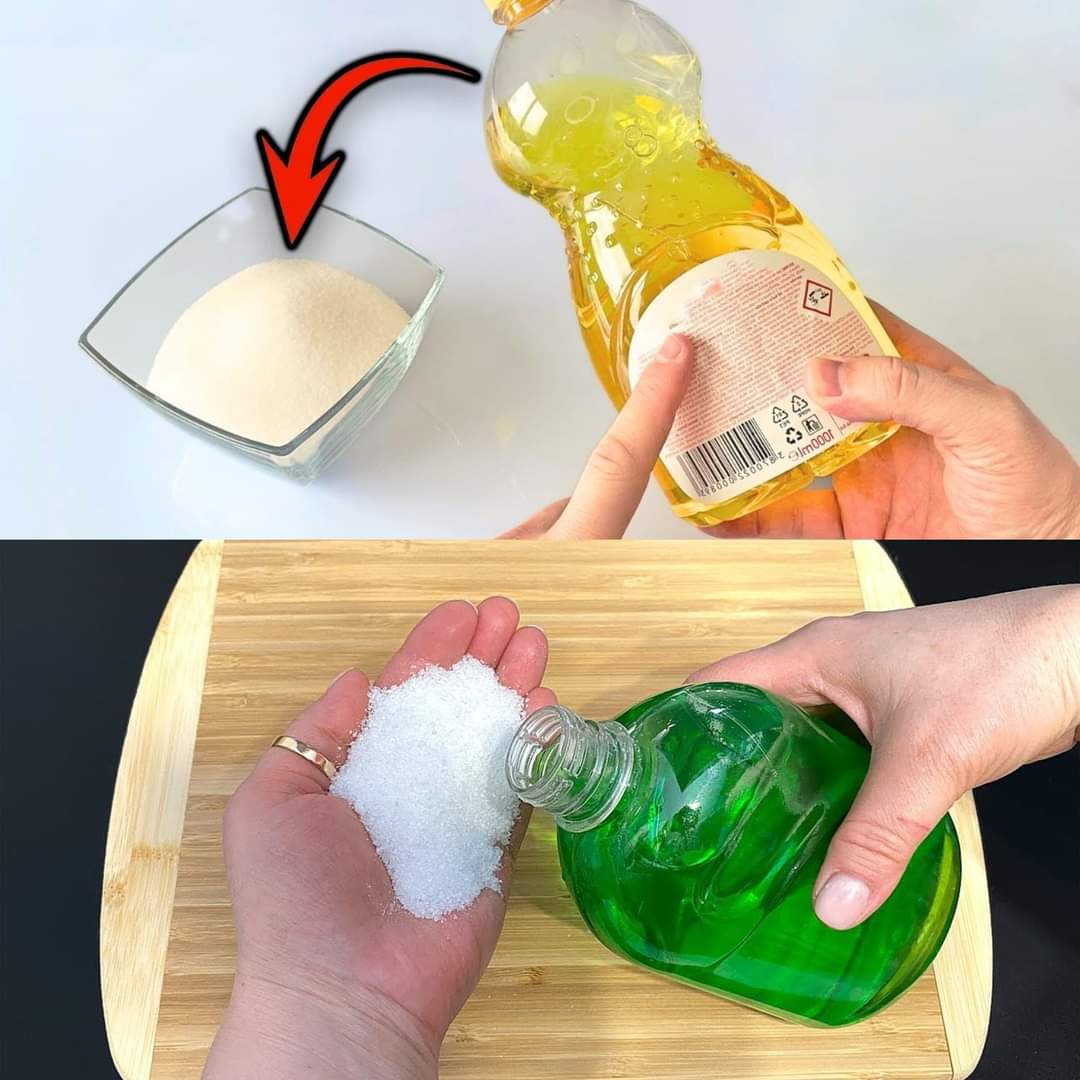Why Salt and Dish Soap?
- Salt: Acts as a natural abrasive that can help scour and break down accumulated debris in the pipes.
- Dish Soap: Grease-fighting properties of dish soap help dissolve and dislodge greasy residues that are often a component of drain clogs.
How to Use Salt and Dish Soap to Clear Drains
Ingredients:
- 1/2 cup of table salt
- 1/2 cup of dish soap
- Boiling water
Instructions:
- Pour Dish Soap into the Drain:
- Start by pouring half a cup of dish soap directly into the drain. Dish soap is denser and will sink to the bottom where the clog is likely forming, starting to work on the grease.
- Add Salt:
- Follow the dish soap with a half cup of table salt. The salt adds an abrasive component that helps to scrub the pipes clean as it moves through.
- Boil Water:
- While the dish soap and salt are sitting in the drain, bring a large pot of water to a boil. You’ll need enough water to completely flush the drain after the treatment.
- Flush the Drain with Boiling Water:
- Carefully pour the boiling water down the drain. The heat helps to melt greasy substances and the force of the water helps to dislodge the clogs. The combination of heat, pressure, and the chemical action of the soap and salt can effectively clear many common types of blockages.
- Repeat if Necessary:
- If the clog doesn’t clear the first time, you can repeat the process once more. Sometimes, tougher clogs need a bit more persuasion.
Preventive Tips
- Regular Maintenance: Use this method monthly as a preventive measure to keep your drains clear.
- Avoid Clogs: Be mindful of what goes down your drains. Avoid disposing of oils, coffee grounds, and food scraps in your sink.
Safety Notes
- Care with Boiling Water: Always use caution when handling boiling water to avoid burns.
- Plastic Pipes Caution: If you have plastic piping, be cautious with boiling water as excessive heat can sometimes warp or damage certain types of plastic pipes. Using very hot, but not boiling, water can be a safer choice in these cases.
This simple DIY method is often enough to clear light to moderate clogs, saving you a call to the plumber and some money along the way. For more severe blockages, however, it might still be necessary to seek professional assistance.
ADVERTISEMENT

